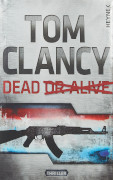|
California EPA Moves to Label Monsanto's Roundup 'Carcinogenic' (Notice on California Environmental Protection Agency’s Office of Environmental Health Hazard Assessment website). According to this story linked above, the evidence used looks sketchy (underline mine): quote:What evidence is there for a link between glyphosate and cancer? Are people still using the Seralini study, or is there a separate source of evidence for increased cancer generation in rats?
|
|
|
|

|
| # ? Jun 10, 2024 19:22 |
|
Absurd Alhazred posted:California EPA Moves to Label Monsanto's Roundup 'Carcinogenic'. California also lists 'Living, The Sun, Bad Opinions, and Staring Contests' as carcinogens.
|
|
|
|
Whoops, the news report is inaccurate- it's the OEHHA within their COEPA, which probably does have authority. Still could present a conflict problem, and is still probably dumb, though. The comments in the news article are fun! edit: interesting- the relevant statute that requires the agency to list and assign warning labels to IARC listed substances is, to put it mildly, controversial. Discendo Vox fucked around with this message at 03:19 on Sep 8, 2015 |
|
|
|
|
Here's the report they are using to make the decision: http://monographs.iarc.fr/ENG/Monographs/vol112/mono112-02.pdf
|
|
|
|
Reading through the citations: "Hey, no Seralini this might be..... Oh, there he is."
|
|
|
|
CommieGIR posted:Reading through the citations: The Séralini growth has metastasized. 
|
|
|
|
I've only skimmed it so far, but in their defense the first couple of times he's mentioned they have "[working group does not consider this to be a sufficient study on glysophate carcinogenicity]" in the comments section of their table.
|
|
|
|
By my limited understanding, the IARC report and probable carcinogen finding was sound, the problems are in the uses it is being put to. The studies that bore most of the weight had to do with farm workers exposed directly to spraying and not with consumer-side exposure rates.
Discendo Vox fucked around with this message at 07:47 on Sep 8, 2015 |
|
|
|
|
Discendo Vox posted:By my limited understanding, the IARC report and probable carcinogen finding was sound, the problems are in the uses it is being put to. The studies that bore most of the weight had to do with farm workers exposed directly to spraying and not with consumer-side exposure rates. Yeah, that was my understanding too. The IARC basically came out saying "If you bathe in this poo poo and exceed your exposure limit, you may get cancer." Which is reasonable.
|
|
|
|
It's also completely unsurprising that enough of some compound causes cancer, just like many other compounds people encounter regularly. The question is whether it causes enough cancer at a sufficiently low dose to be worth worrying about.
|
|
|
blowfish posted:It's also completely unsurprising that enough of some compound causes cancer, just like many other compounds people encounter regularly. The question is whether it causes enough cancer at a sufficiently low dose to be worth worrying about. Based on the report, it's sufficient evidence that spraying practices, especially around fieldhands, should be examined and probably modified. I'm assuming glysophate has a "look, drinking this is bad" label on it already, which in my uneducated opinion would be sufficient for consumer-side bottles of roundup. ...Iunno, a carcinogen warning on consumer-facing weed spray materials might be appropriate if properly designed. I just don't trust California to be the arbiter here.
|
|
|
|
|
Milkweed chat: Thought I'd bring to this thread's attention the products being rolled out by a Quebec company that is developing uses for milkweed fibres. They are already supplying Parks Canada with oil-spill clean up kits, are touting milkweed as a cheaper alternative to down insulation , and are pushing for farmers in Quebec and Vermont to produce milkweed. Company website here , watch out for awkward French-English translation. It's neat to see this kind of stuff. That said, I definitely endorse an emphasis on landscape ecology rather than species specific conservation strategies (though they are seldom mutually exclusive). So other than hypothetically helping monarch butterflies, I'm not entirely sure how beneficial fields full of milkweed monocultures will be.
|
|
|
|
I seem to recall a long argument about various types of sugar syrups. A few researchers in the USDA and UMinn St. Paul did some research and seem to have conclusively established that honey, sucrose, and HFCS are pretty much the same.quote:Background: Public health recommendations call for a reduction in added sugars; however, controversy exits over whether all nutritive sweeteners produce similar metabolic effects. Now I know what's going to stand out for you, Discendo Vox: added sugar
|
|
|
Absurd Alhazred posted:I seem to recall a long argument about various types of sugar syrups. A few researchers in the USDA and UMinn St. Paul did some research and seem to have conclusively established that honey, sucrose, and HFCS are pretty much the same. You know me too well  I've slightly modified my stance on the subject, actually! "added sugar" has at least something like a meaningful definition on the industry side-though the term isn't all that useful in that context, either. It's still meaningless from a consumer or health perspective, though. My current triggers are "Made with Real Sugar" and misleading serving size applications. Calling someone to get more information on regulation of the latter tonight, actually. I've slightly modified my stance on the subject, actually! "added sugar" has at least something like a meaningful definition on the industry side-though the term isn't all that useful in that context, either. It's still meaningless from a consumer or health perspective, though. My current triggers are "Made with Real Sugar" and misleading serving size applications. Calling someone to get more information on regulation of the latter tonight, actually.Edit: funding from "Big Honey" (which is surprisingly well organized), but the results don't particularly benefit the group, so it's probably fine. I don't know the researchers in particular. The design seems sound aside from shallow statistical reporting and limited power. I'm still trying to get access (it's hard to navigate to these early edition articles)- my main concern will be differential dose size and the background section. Edit 2: Oh, come on. quote:Limitations That's a couple of gaps big enough to drive a truck through. I wish someone would just pony up for full intake control. I mean, 14 days isn't all that expensive for this sort of thing. After some time studying the literature and attending talks, I've come to realize that nutrition science is methodologically about a decade behind my own social science area. People are still reporting only significance thresholds on their outcome variable, which was considered a bad practice in the 50s. Thanks for this article, AA. I have several ideas about how to use it. Discendo Vox fucked around with this message at 01:39 on Sep 14, 2015 |
|
|
|
|
Can I still hate on HFCS because it makes soda suck when its used instead of cane sugar?
|
|
|
ALL-PRO SEXMAN posted:Can I still hate on HFCS because it makes soda suck when its used instead of cane sugar? No. Properly run double blind taste tests generally find that the difference is imperceptible, to the extent that it exists (one or the other, I forget which, breaks down pretty rapidly into the other in the manufacturing process). The distinctions you taste usually have to do with other differences in the sourcing of ingredients, or that the cane sugar sweetened soda has more sugar in general. To re-emphasize for third parties, the Corn Refiners' Association are by no means a nice bunch, and people they've hired, like Rick Berman, are absolutely horrible. In the context of the cane vs. hfcs material, though, they happen to be in the right- and their opponents, the cane sugar people, are much better at information manipulation. I just found this article, which appears to be a decent account of how insane this whole corn vs cane business is. Discendo Vox fucked around with this message at 08:21 on Sep 14, 2015 |
|
|
|
|
ALL-PRO SEXMAN posted:Can I still hate on HFCS because it makes soda suck when its used instead of cane sugar? It's molecularly the same thing. So I suspect it's not just the HFCS.
|
|
|
|
CommieGIR posted:It's molecularly the same thing. So I suspect it's not just the HFCS. Well whatever it is, the Mexican Coke I buy tastes better so I'm going to keep buying it.
|
|
|
|
ALL-PRO SEXMAN posted:Well whatever it is, the Mexican Coke I buy tastes better so I'm going to keep buying it. Oh, it's probably the lead then.
|
|
|
|
It's not molecularly the same thing, it just ends up being the same thing (sucrose breaks down to glucose and fructose). So, it's conceivable that they taste different. They just don't.
|
|
|
|
CommieGIR posted:It's molecularly the same thing. So I suspect it's not just the HFCS. I've found I can taste a difference. The HFCS leaves an aftertaste that sucrose does not. I realize that they're metabolized the same way, but having sucrose on the tongue versus fructose/glucose does make for a slight flavor difference. Sucrose sweetened drinks have a crisper taste, while that HFCS aftertaste lingers and feels slimy at the back of my throat. So I think people can make valid claims about the differences. The problem comes when they try to push it beyond a taste preference into something biological.
|
|
|
|
Discendo Vox posted:No. Properly run double blind taste tests generally find that the difference is imperceptible, to the extent that it exists (one or the other, I forget which, breaks down pretty rapidly into the other in the manufacturing process). The distinctions you taste usually have to do with other differences in the sourcing of ingredients, or that the cane sugar sweetened soda has more sugar in general. Rick Berman ruined Star Trek so it's not surprising that he's behind all of this HFCS poo poo Deteriorata posted:I've found I can taste a difference. The HFCS leaves an aftertaste that sucrose does not. I realize that they're metabolized the same way, but having sucrose on the tongue versus fructose/glucose does make for a slight flavor difference. Yeah okay, but have you actually done a blind taste test where the products had equal quantities of HFCS or Table Sugar? Simply sampling two Cokes that were made in completely different places, with potentially different recipes in addition to ingredients, doesn't mean much.
|
|
|
|
We've probably dogpiled him enough given he was half-joking when he first said it.
|
|
|
|
|
ALL-PRO SEXMAN posted:Well whatever it is, the Mexican Coke I buy tastes better so I'm going to keep buying it. I can't speak for Coke specifically, but tons of sodas use formulas much more different than just HFCS vs cane sugar in different countries so on. Take Pepsi "Throwback" for example, the one they came out with a while ago that's cane sugar based. They didn't just switch the sugar source, it has different flavorings in it - Pepsi regular has citric acid as part of the ingredients (either for a hint of citrus flavor as part of an extract or just for its own mild sourness, the ingredients list sure doesn't say), while Pepsi Throwback doesn't. And besides that, different bottling plants will have different tap water coming in, and different methods of filtering it before it's mixed with the syrups. So the exact same syrup mixed in different parts of the same country, let alone other countries, can have different hints of taste from the source water.
|
|
|
|
My wife is absolutely certain that Coke from a McDonald's soda fountain tastes different from any other Coke. Probably something to do with the specific syrup manufacturer and the way the water is carbonated.
|
|
|
|
LeftistMuslimObama posted:My wife is absolutely certain that Coke from a McDonald's soda fountain tastes different from any other Coke. Probably something to do with the specific syrup manufacturer and the way the water is carbonated.
|
|
|
|
LeftistMuslimObama posted:My wife is absolutely certain that Coke from a McDonald's soda fountain tastes different from any other Coke. Probably something to do with the specific syrup manufacturer and the way the water is carbonated. The formula, even in the same region, is affected by a ton of difference variables: is is pre- or post-mix, the various systems the syrup is used in, etc. These formula changes impact taste. And then, as Fishmech points out, different regional or subtypes have very different formulas.
|
|
|
|
Strudel Man posted:Or just them watering it down. To clarify, she thinks McDonald's coke is *better* than coke from a can.
|
|
|
|
LeftistMuslimObama posted:My wife is absolutely certain that Coke from a McDonald's soda fountain tastes different from any other Coke. Probably something to do with the specific syrup manufacturer and the way the water is carbonated. McDonald's corporate probably does have a standard mixing ratio and method that they want their franchisees to stick to, which may be different from other places or the bottlers. And in general a lot of people prefer the way a "fresher" fountain-mixed soda tastes compared to soda that sat in a glass or plastic bottle or metal can for a while. Pretty much for the same reasons that some people swear by glass bottled soda versus cans, or cans versus plastic bottles, etc.
|
|
|
|
ALL-PRO SEXMAN posted:Well whatever it is, the Mexican Coke I buy tastes better so I'm going to keep buying it. Possibly glass bottles? I don't know if plastic vs. glass bottling will survive double blind testing, but it makes the drinking experience different. As for fountain, I love fountain drinks but they're finicky and variable, and having worked at restaurants in the past I know how gross they get if they're not taken apart and cleaned regularly. Might be McDonalds is strict on it, since they do a lot of micromanaging of how franchisees do things.
|
|
|
|
Killer robot posted:Possibly glass bottles? I don't know if plastic vs. glass bottling will survive double blind testing, but it makes the drinking experience different. This is a known thing, at least for glass vs canned beer.
|
|
|
|
I wouldn't be surprised that the way soda flows out of the different containers also affects taste/texture in a way.
|
|
|
|
In conclusion, soda is a land of contrasts.
|
|
|
Absurd Alhazred posted:In conclusion, soda is a land of contrasts. Discendo Vox fucked around with this message at 04:35 on Sep 16, 2015 |
|
|
|
|
computer parts posted:This is a known thing, at least for glass vs canned beer. Right, it's well-known that canned beer tastes better since it gets less light exposure
|
|
|
|
LeftistMuslimObama posted:To clarify, she thinks McDonald's coke is *better* than coke from a can.
|
|
|
Strudel Man posted:Sever. It's true
|
|
|
|
|
Aluminum cans definitely have a taste (like aluminum foil but not anywhere near as strong, not really bad imo) but I don't think it gets into the soda directly in the actual can since it's not there if you pour the canned soda into a cup and drink from the cup. Or maybe the soda itself overwhelms it so you can really only taste it direct from the can and it's not altering the taste of the soda so much as the taste just before and after the soda, I dunno. Never noticed any sort of taste difference between glass and plastic, though smooth glass does have a better mouthfeel than the screwy plastic ridges.
|
|
|
GlyphGryph posted:mouthfeel mods, ban this sick filth.
|
|
|
|
|

|
| # ? Jun 10, 2024 19:22 |
|
Discendo Vox posted:mods, ban this sick filth. Maybe that's the real problem with GMOs - they've just got that terrible mouthfeel.
|
|
|











 I CANNOT EJACULATE WITHOUT SEEING NATIVE AMERICANS BRUTALISED!
I CANNOT EJACULATE WITHOUT SEEING NATIVE AMERICANS BRUTALISED!















